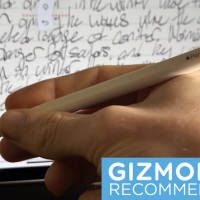The literary works that foreshadowed the biggest headlines of the year
Sometime in the future, I imagine our descendants might gather on their charging pods on a balmy New Year’s Eve to play a party game in which they put real headlines from 2018 into a bowl alongside one line synopses of novels. As they pull out the phrases — children gassed at border, American president investigated for collusion with Russia, AI robot beats human in live debate —it will be difficult to separate fact from fiction.
So much of what’s happened this year has been unbelievable, and yet there’s also been an eerie sense of familiarity as if, despite the lack of precedent, I’ve encountered these scenarios before. It turns out I have: in books. Prescient writers have identified the very issues we’re living through, some in hyper-realist fiction, some in dystopias (whose gap with reality is closing), and some in memoirs which contain the seeds of our present problems. I know that reading a book about the loss of women’s reproductive rights, for example, or a world without private data, might seem less than enticing after a year of depressing headlines, but think of it as a positive alternative to the mind crush of endless sound bites, an opportunity to contemplate what’s happened and what might follow in 2019, if we don’t speak up.

Family Separation: The Leavers by Lisa Ko
Winner of the 2016 PEN/Bellwether Prize for fiction, The Leavers explores the devastating reality around undocumented immigration and the trauma of separating families — a horribly topical theme given children are still being separated from their migrant parents at the border and during detention/deportation. In Polly, a young Chinese woman who moves to the United States and is forced to give her son up for adoption, Ko shows how the people who risk everything to come to the United States have no money, resources, or future at home — in short what looks like making a choice is actually the result of having no choices at all.
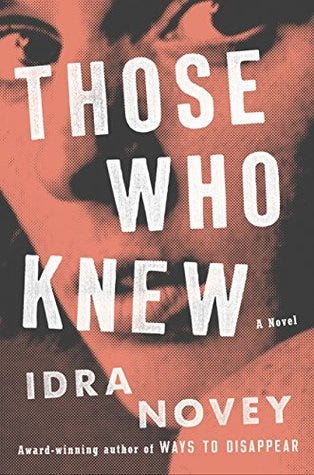
Brett Kavanaugh’s Hearings and Confirmation: Those Who Knew by Idra Novey
What happens when a woman suspects that the powerful senator with whom she had an affair as a student is taking advantage of another young woman? Will anyone believe her, and does she have an obligation to speak up about his past behavior? These questions drive Idra Novey’s second novel, and echo those asked at the Supreme Court confirmation hearing that gripped the nation earlier this year when Dr. Christine Ford came forward with an allegation that the then-nominee, Brett Kavanaugh, sexually assaulted her as a teenager. Ford’s testimony wasn’t enough to keep Kavanaugh from holding one of the highest seats in our judicial system, and we were left with no doubt about how much our nation idolizes men of power, or how reluctant we are to hold them accountable for their past misdeeds.
‘Those Who Knew’ Explores How Silence Helps Powerful Men Get Away with Abuse
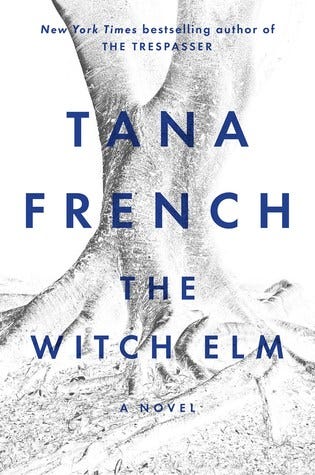
The #MeToo Movement: The Witch Elm by Tana French
The #MeToo Movement has forced us to acknowledge that men, especially powerful white men, are privileged, and part of that privilege has been the ability to treat women’s bodies as objects available for their pleasure. The dovetail to this privilege is a dangerous sense of entitlement, one that’s so engrained that some men didn’t even realize they felt it until now that it’s being challenged and taken away. This cultural awakening is at the center of Tana French’s mystery The Witch Elm, embodied by a man named Toby who has “always considered [him]self to be, basically, a lucky person.” Is he lucky? Or has he always been advantaged because he’s a well-off white male? Did he behave well towards others or was he simply acting as he pleased and no one told him to stop? French is a master at devising murder mysteries that execute exciting plots while grappling with greater societal issues, and The Witch Elm is both a thriller with thugs and buried skulls and the story of one man’s reckoning with his own privilege.
Tana French’s ‘The Witch Elm’ Is an Exploration of White Male Privilege
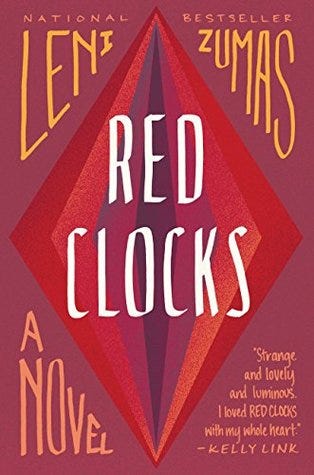
Attacks on Abortion Rights: Red Clocks by Leni Zumas
In Kentucky, a requirement that ultrasounds be displayed and described. In Arkansas, a ban on abortions via medication. In Alabama, a ban on a common second-trimester abortion, and in Indiana, new requirements for parental consent before an abortive procedure. The Personhood Amendment, which gives the right of life, liberty, and property to unborn embryos. These are all actual laws passed against women’s reproductive rights in the United States in 2018 — with the exception of the Personhood Amendment, which is the fictional basis for Leni Zumas’ novel Red Clocks. The book follows five women in a small Oregon fishing town and examines the myriad ways that such repressive laws affect women, from the more commonly considered case of the accidentally pregnant teen to an older single woman who is trying to conceive but is barred from using IVF because the embryos can’t give their consent. Such a range of implications is important to consider as states make progress on limiting access to abortion and reproductive health care, and the newly conservative-leaning Supreme Court threatens to overturn Roe V. Wade.
Forget ‘Handmaid’s Tale’ — ‘Red Clocks’ is the Reproductive Dystopia We Need to Read Right Now
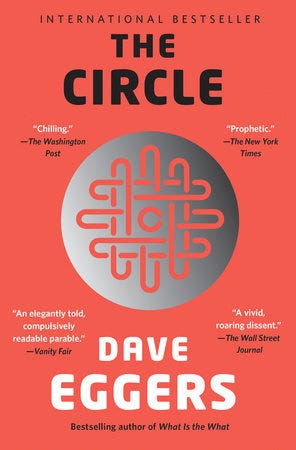
Facebook Privacy Scandal: The Circle by Dave Eggers
In March, the New York Times revealed that a firm called Cambridge Analytica accessed the private personal data of millions of Facebook users and used it to influence political events from Brexit to the election of Donald Trump. It all sounded like a chapter from Dave Eggers’ 2013 novel, The Circle, in which a Silicon Valley tech giant has created a super platform that collects all your information under the auspices of bettering your life through ease and transparency. The increasingly invasive technology, including a camera which transmits your life as you live it, becomes a warning to the reader about the danger of giving up your privacy, a message that resonates in a year when we’ve heard almost monthly admissions that major companies have lost our private data to hackers. The Circle also asks us to consider the perils of voluntarily uploading our private lives, and a scenario, like that with Facebook and Cambridge Analytica, where we have lost the ability to take our privacy back.
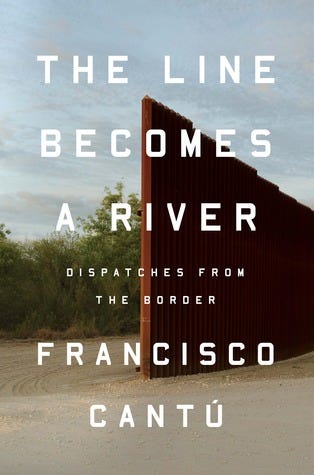
The Demonization of Immigrants: The River Become A Line by Francisco Cantú
In this searing memoir, Francisco Cantú, who grew up in the Southwest with a park ranger mother, herself the daughter of a Mexican immigrant, recounts his years working as a border patrol agent. The job is physically demanding and emotionally disturbing — he must track humans like animals, dispose of bodies he finds in the desert, and send people, most who are fleeing violence in their home countries, into detention centers to be deported. Eventually Cantú leaves the job to protect his sanity, but he becomes involved again when a friend goes to Mexico to visit his dying mother and is unable to get back into the U.S. and reunite with his family. This is the book to read if you want to better understand the dehumanization of immigrants of color and how negligently simplistic it is to say we should just “build a wall.”
Pulitzer Winner Jose Antonio Vargas Reminds Us that No Human Being is Illegal
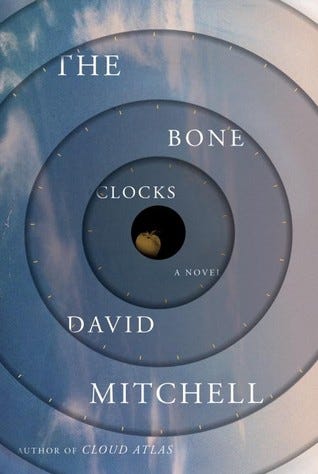
Climate Change: The Bone Clocks by David Mitchell
A recent series of warnings from the scientific community have made it clear that the horrifying repercussions of climate change are coming sooner than we think. This makes reading The Bone Clocks a kind of stomach-sinking experience, but perhaps a useful one for anyone who doubts what the warming of the planet will do to humanity. Moving throughout place and time in the 21st Century, the final section of Mitchell’s novel brings us into a world devastated by climate change. Countries have devolved into a kind of government-controlled feudalism, and the scarcity of resources is a tinder box that the heat of the planet is about to light into anarchy.

Gun Violence: If We Had Known by Elise Juska
If We Had Known starts with a shooting in rural Maine similar to one of the 300 mass shootings that have happened in the US this year. In the aftermath of the carnage, a violent essay penned by the shooter surfaces and the shooter’s English teacher finds herself at the center of a growing controversy centered around the issue of guilt. The novel pushes the reader to ask questions about why this domestic terrorism exists and how we, as society, might accept responsibility.
What It Means to Be a Writing Teacher in the Age of School Shootings


8 Books to Help You Understand WTF Just Happened in 2018 was originally published in Electric Literature on Medium, where people are continuing the conversation by highlighting and responding to this story.
Source : 8 Books to Help You Understand WTF Just Happened in 2018







